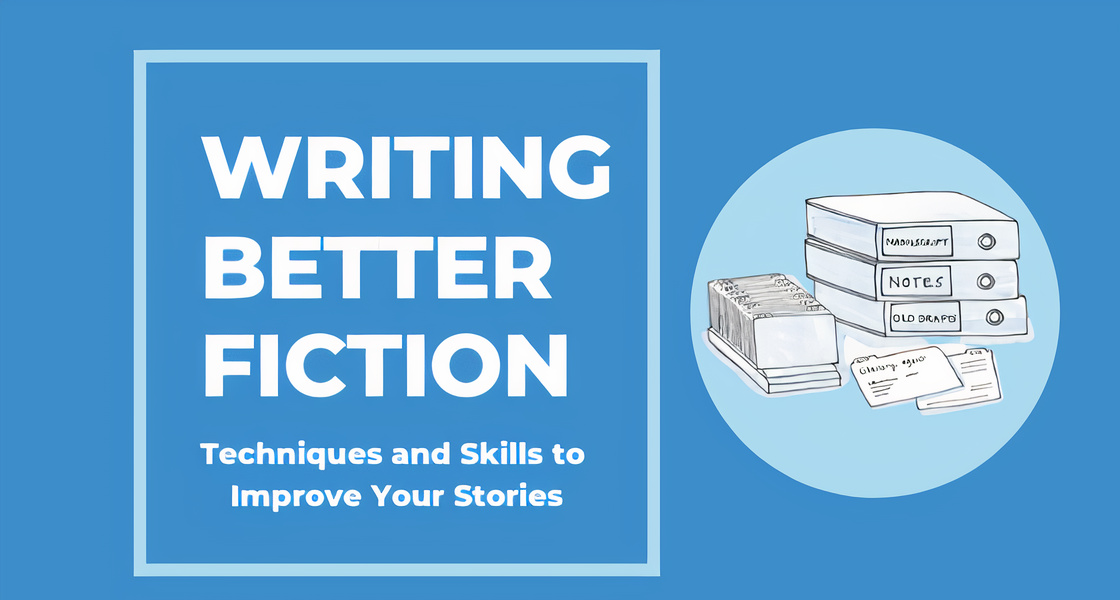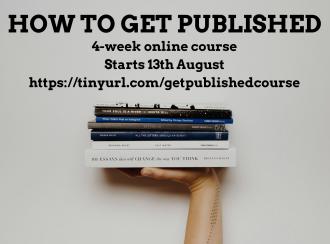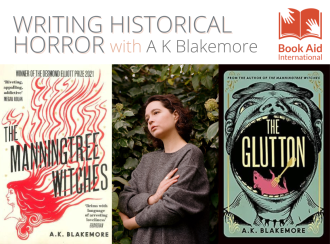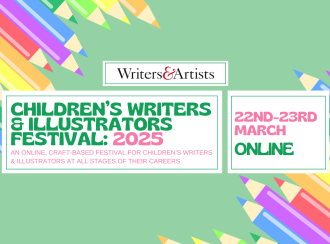
Are you serious about taking your writing to the next level?
Writing Better Fiction is an introduction to the essential elements of storytelling, and a perfect opportunity to learn about the nuts and bolts of the writing process, apply them to your own work, develop your confidence as a writer, and receive invaluable critical feedback on both your prose and story structure. Led by critically acclaimed author William Ryan, this four-week course is for a maximum of 12 students and for writers of any genre. It also complements Your Novel: Structuring, Editing and Preparing for Submission, a six-week course designed to prepare your work-in-progress for the difficult journey to publication.
Course benefits
Students on this course should expect:
- 10 hours of practical writing advice and tuition over just 4 weeks
- Feedback from William Ryan on up to 3,200 words of your own writing (4x 800-word submissions)
- Peer-to-peer review: amass a wealth of objective feedback from fellow students
- Deadlines on writing exercises and written work to make the most of what's on offer
- Copies of presentations and audio recordings from all sessions
- Exclusive discounts on W&A titles and other products
Each week sessions will combine tutorials with practical exercises, discussion and feedback
Testimonials from all W&A courses led by William Ryan
'Taking Bill Ryan’s novel course was one of the best decisions I have made as a writer. His classes combined useful lessons on crafting a novel in all its component parts with the close reading of each writer’s text. His insightful critique of my prose cut to the heart of what did and did not work in the scene, and his kind encouragement left me motivated to keep pushing myself to grow as a writer. All this while creating a warm and welcoming atmosphere where students felt confident to share their work.' Tammye Huf, author of A More Perfect Union (Myriad Editions)
'Bill gently teases the story out, with the sort of questions readers would ask. He helps writers understand that every sentence is important, that every conversation must add to the overall narrative arc, and that there is no valid ‘filler’. His feedback plus the feedback of others on the course, was invaluable for getting outside the writer’s point of view and into the reader’s.' Michele Kirsch, author of Clean (Short Books), winner of the RSL Christopher Bland Prize
'I was very impressed with the amount of work Bill put in, and the overall standard of work was very high indeed. It was a good catalyst for getting people writing, and the criticism from other students was, in the main, helpful.' Liz Newman
'[T]his was superb. One of the best writing courses I've been on.' Wassim
'Thank you for a useful and inspiring course. The weeks flew. I feel I’ve improved as a writer and also as a reader; I find I’m looking for the ‘strings’ when I’m reading published novels now, and marvelling when an author has hidden them well. The tutor was encouraging, as were the other writers on the course. Some of us are keeping in touch to give continued feedback on one another’s work.' Marie Kreft
'This was my first course on creative writing and I feel like a whole new world has opened up for me. I can now see so many more ways to improve my writing. Now I just need to put them into practice. Bill was patient and encouraging for those who needed support to boost their confidence. He created an environment that urged improvement in a comfortable way. Thank you!' Beth Rehman
'This was the first online course I’ve taken. I didn’t really know what to expect, but I was delighted. I learned so much from Bill’s feedback in the workshops – not just with me but also with the other participants. And I gained a lot too from exchanging feedback with my fellow course participants. I don’t hesitate to recommend the course to anyone with a first novel in progress.' John Nixon
'I have been on courses before, but haven’t experienced such a solid, useful mix of the tools of the trade and feedback. Inspiring, practical, enjoyable.' Clare Palmer
'Bill gave very detailed feedback, sometimes quite challenging. He made a real effort to balance criticism with encouragement – not easy […] There was a real sense of progress, especially in the last couple of weeks where everyone seemed to have raised their game. […] Insightful. Challenging. Encouraging.' Stuart Blake
Schedule
William will read and mark up all work submitted during the course – highlighting areas which may need work and pointing out areas of strength. In addition you will be expected to read and give constructive feedback on the submitted work of the other students, as will the other students be expected to constructively feedback on your work. The format of each week will be a one hour talk by William, using submitted work as examples, followed by workshops on four of the submitted 800-word submissions
Week One
18.00-19.00: Techniques of Prose Fiction
William will discuss various basic stylistic elements of fictional storytelling, including the use of point of view for narration, structure, managing characters, the importance of conflict, conveying information and handling description, momentum and advice on good prose, followed by a workshop based around submitted work.
19.05-20.30: Workshop on a 800-word extract which reflects the general tone of your story, together with a brief description of where this fits into your story.
Week Two
18.00-19.00: Writing Place – Writing Setting, Research, Atmosphere and Dramatic World
William will discuss how to write the setting and location in which your story takes place, the importance of research and how to use it, how to create an atmosphere that works for your story and the importance of identifying the dramatic world that will contain your story.
19.05-20.30: Workshop on an extract in which your central character visits a location for the first time, together with a brief description of where this fits into your story.
Week Three
18.00-19.00: Writing Scenes – The Scene is the Building Block of Your Story
William will discuss the importance of identifying the purpose of a scene, how to begin scenes, how to end them, the benefits of subtexts and how to introduce them, the need for conflict and ways in which to enhance each scene’s dramatic complexity and appeal.
19.05-20.30: Workshop on a submission of a dramatic scene between two or more characters which changes the course of your story, together with a brief description of where this fits into your story and what the characters motivations are.
Week Four
18.00-19.00: Writing Dialogue – Good Dialogue is Likely to be Key to Success
William will discuss the function of dialogue, how to carry dialogue, how to create character dialogue styles as well as the importance of conflict, motivation and control in dialogue.
19.05-20.30: Workshop on a submission in which a key conversation takes place, together with a brief description of where this fits into your story and what the characters motivations are.

William Ryan has written six historical novels which have been shortlisted for numerous awards, including the Theakstons Crime Novel of the Year, The Kerry Group Irish Fiction Award, the HWA Gold Crown for Historical Fiction, the Crime Writers Association’s Steel, Historical and New Blood Daggers and the Irish Crime Novel of the Year (four times). William has previously taught creative writing at City, University of London and at the University of East Anglia as well as being the author of the Writers' & Artists' Guide to How to Write. His latest novel, The Winter Guest, was published in January 2021 by Bonnier Zaffre.
The course fee of £275 (incl. VAT) is payable in full online.
Please note that payment instalment plans are available for all W&A events, writing courses and editing services. Contact W&A Admin on writersandartists@bloomsbury.com so that we can find a payment schedule that works for you.
If this event is Sold Out, please look out for other writing courses by visiting our Events homepage.
Accessible to All
It’s of real importance to Writers & Artists that our events and courses remain accessible to all.
- As part of our accessibility scheme, one bursary place is available for this course as standard. Please visit our bursaries page for further information about how to apply.
- This is an online course presented via Zoom video-conferencing software. Joining instructions and full guidance will be provided before the course start-date.
- Course materials are made available to participants after each session at the discretion of the course leader.
- A recording of each session will be circulated to participants and remain available to view for a time-limited period.
- The course will include written text and visuals. Please contact us in advance so that we can make arrangements to be sure all documents appear in a format that works for you.
- If you’d like to attend but have any questions or concerns regarding accessibility, then please email AccessWA@bloomsbury.com


